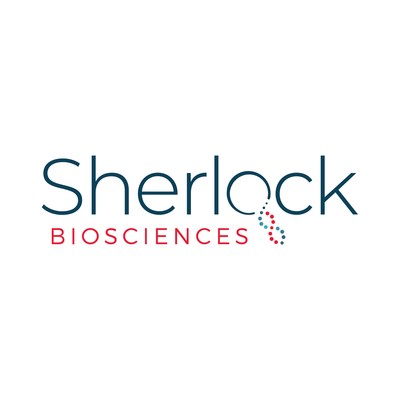Subject: PLW
Sherlock at Apex of CRISPR-based Diagnostics after USPTO Grants Earliest Priority Patent
Preeminent IP position gives Sherlock freedom to operate and commercialize across multiple CRISPR business avenues
WATERTOWN, Mass., Feb. 21, 2023 /PRNewswire/ -- Sherlock Biosciences, a company engineering biology to bring next-generation lab-quality diagnostic testing to the point of need, today announced that the U.S. Patent and Trademark Office (USPTO) has granted a patent for the diagnostic use of the Cas12 enzyme, establishing Sherlock as the leader in CRISPR-based diagnostics with freedom to operate in the U.S. Sherlock has exclusive U.S. rights to the patent from Shanghai-based Tolo Biotech, plus additional intellectual property (IP) for Cas12 and Cas13 from the Broad Institute, giving the company the preeminent IP position in the space.
The newly granted patent covers a method for detecting nucleic acids leveraging the collateral cleavage activity of Cas12. Unlike Cas9 ? the enzyme commonly used for gene editing and CRISPR-based therapeutics, and the subject of several patent disputes ? Cas12 is best suited for detecting DNA and RNA sequences, rather than editing them. Sherlock and its academic co-founders have already demonstrated the potential for flexible, high-accuracy, low-cost Cas12-based detection of diseases, including malaria, tuberculosis and COVID-19.
"Sherlock's diagnostic tests have the potential to transform the healthcare paradigm by shifting power to consumers. Securing this patent is an important step to deliver powerful, over-the-counter diagnostics so consumers have more control over their healthcare decisions," said Bryan Dechairo, president and CEO of Sherlock Biosciences. "Our diagnostics rely on novel uses of synthetic biology and CRISPR technology to condense the traditional lab tools into handheld tests. With this patent, on top of our existing agreement with Tolo granting co-exclusivity to Cas12 globally, we have secured our dominant IP position with the most comprehensive portfolio of diagnostic CRISPR patents."
Sherlock's CRISPR-based diagnostics rely on a key pair of technologies to detect diseases, covered by the patent: amplification and collateral cleavage. First, a specific nucleic acid signature is amplified so that the guide RNA can find and recognize it within a test sample. Once the guide RNA identifies and binds to the target nucleic acid, the Cas12 enzyme becomes activated and cleaves a fluorescently labeled probe present in the mixture. This cleavage event triggers a reaction which then leads to the release of a fluorescent signature, indicating a positive test.
"With this patent, Sherlock has a clear, unimpeded pathway to commercialization for our CRISPR-based diagnostics," said Jim Collins, Ph.D., co-founder and board member of Sherlock Biosciences. "The pairing of proprietary amplification technology from the Wyss Institute, as well as the rapid molecular amplification chemistry gained through our recent acquisition of Sense Biodetection, puts us on track to become a global health leader. This dominant and defensible patent position will allow us to establish the necessary market foothold in the U.S. before we bring our rapid, point-of-need diagnostic tests to the rest of the world."
About Sherlock Biosciences
Sherlock Biosciences is developing products that will empower people to access answers and have more control over their health decisions. Through our engineering biology tools, CRISPR-based SHERLOCKtm and synthetic biology-based INSPECTRtm, we are bringing together the accuracy of PCR with the convenience and simplicity of antigen tests for molecular diagnostics at the point-of-need. SHERLOCK and INSPECTR can be used in virtually any setting without complex instrumentation, making it well suited for use in the home and in low resource settings, opening up a wide range of potential applications in areas including infectious disease, early detection of cancer, treatment monitoring, and precision medicine. In 2020 the company made history with the first FDA-authorized use of CRISPR technology. For more information, please visit www.sherlock.bio.
Contact
[email protected]
SOURCE Sherlock Biosciences
These press releases may also interest you
|
News published on and distributed by:




